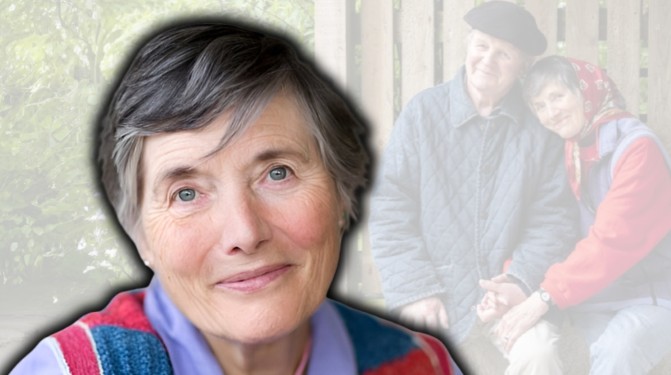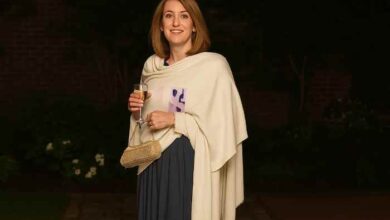Clare Morpurgo: A Lifelong Advocate for Children, Nature and Literature

Clare Morpurgo is a name that resonates with compassion, vision, and unwavering dedication to children’s well-being. Known both as the wife and collaborator of Sir Michael Morpurgo, and as the daughter of publishing giant Sir Allen Lane, Clare has carved out a unique and powerful legacy in her own right. Her work spans literature, education, and philanthropy, most notably as the co-founder of the charity Farms for City Children. Through this initiative and her continued advocacy, she has transformed the lives of thousands of children, offering them life-changing experiences that bridge the gap between urban hardship and the healing powers of nature.
This in-depth exploration of Clare Morpurgo’s life sheds light on her roots, her contributions to children’s literature and learning, and the long-lasting societal impact of her charitable ventures.
Early Life and Influential Heritage
Born as Clare Lane, she grew up in a household steeped in literary culture and intellectual curiosity. Her father, Sir Allen Lane, was the founder of Penguin Books, one of the most revolutionary publishing houses in British history. His goal was simple yet transformative: to make high-quality literature affordable and accessible to all. This ethos of accessibility, combined with a profound respect for books and learning, shaped Clare’s worldview from an early age.
Raised in Devon, Clare’s childhood was marked by the natural beauty of the countryside. The rural setting instilled in her a love for nature, animals, and the rhythms of life that would later become central to her philanthropic mission. Though her father was often preoccupied with his publishing empire, Clare absorbed his entrepreneurial spirit and sense of cultural duty.
Marriage to Michael Morpurgo and a Shared Mission
Clare met her future husband, Michael Morpurgo, during her university years. They married young, eventually raising three children together. While Michael pursued a career in teaching and later became a prolific children’s author, Clare immersed herself in social and educational causes, often working quietly behind the scenes. Their mutual respect, creative synergy, and shared values forged a powerful partnership that would later become the foundation of their most impactful work.
As Michael’s literary star rose—especially with the success of novels like War Horse and Private Peaceful—Clare remained steadfast in her efforts to enrich children’s lives through real-world experiences. Unlike the fantastical journeys of literature, she wanted to give children—especially those from deprived urban areas—the chance to experience the tactile, grounding reality of life on a working farm.
Founding Farms for City Children
In 1976, Clare and Michael Morpurgo co-founded Farms for City Children, using Clare’s inheritance from her father to fund the ambitious venture. The mission was radical in its simplicity: to take children from inner cities and immerse them in week-long residential stays on real farms. These were not holiday retreats, but genuine working environments where children would rise early, feed animals, collect eggs, muck out stables, and engage in the collaborative routines of farm life.
The first farm, Nethercott House in Devon, quickly proved the value of this idea. Children who had never seen a sheep, picked an apple, or walked through mud without pavement began to flourish in the countryside. Confidence grew. Friendships blossomed. Teachers and parents reported transformative changes in behaviour, communication, and self-worth.
Clare’s role in the charity was crucial. She managed operations, coordinated with schools, supported staff, and ensured that the children’s experience remained both enriching and safe. Over the years, the initiative expanded to include two more farms: Treginnis Isaf in Pembrokeshire and Wick Court in Gloucestershire.
To date, over 100,000 children have benefited from the charity’s work. It is no exaggeration to say that Clare Morpurgo has changed lives—thousands of them.
Educational Vision and Child Development
Clare’s background in Montessori education gave her a distinctive insight into childhood development. She believed that education must go beyond the classroom to engage the full spectrum of a child’s being—body, mind, and spirit. This belief underpins every aspect of Farms for City Children.
The farm environment teaches practical skills, but it also fosters qualities like resilience, responsibility, empathy, and cooperation. These are lessons rarely found in textbooks but are vital for personal growth. Children who struggle in academic settings often thrive in the hands-on, physically active world of the farm. Clare understood this intuitively and created a space where these children could succeed on their own terms.
Moreover, in an era where children are increasingly disconnected from nature, Clare’s work is especially vital. She has highlighted, time and again, how vital it is for children to understand the source of their food, the value of hard work, and the importance of nurturing living things. In this way, Farms for City Children also promotes sustainability and ecological awareness.
Contribution to Children’s Literature
While Michael Morpurgo is known as one of Britain’s greatest storytellers, Clare has also left her mark on children’s literature. In 2012, she co-authored the book Where My Wellies Take Me with Michael. The book is a blend of poetry, narrative, and illustrations that pays homage to Clare’s own childhood walks through the Devon countryside.
The story follows Pippa, a young girl on a countryside adventure, and is laced with classic poems by Robert Louis Stevenson, W.B. Yeats, and Edward Thomas, among others. It’s a nostalgic and beautifully crafted tribute to the magic of rural life.
Crucially, all royalties from the book go directly to Farms for City Children, blending Clare’s love for literature with her passion for giving back. The book was shortlisted for prestigious awards such as the Carnegie Medal and the Kate Greenaway Medal and won the English Association Picture Book Fiction Award.
A Life of Recognition and Quiet Service
Despite her remarkable achievements, Clare Morpurgo has never sought the limelight. She has always preferred to work behind the scenes, allowing others—children, volunteers, authors—to shine. Her humility is part of her strength.
In 1999, she and Michael were awarded MBEs (Members of the Order of the British Empire) for their services to youth and education. Later, Clare received an Honorary Fellowship from the University of Chichester in recognition of her educational contributions.
Her approach to leadership is collaborative and maternal, guided not by ego but by empathy. Teachers and volunteers who work with her describe her as warm, fiercely intelligent, and unwavering in her commitment.
Legacy and Continued Impact
Clare Morpurgo’s legacy is not just in awards or buildings or books. It lives in the countless children who, for the first time, felt the wind on their face in an open field, touched a sheep, or saw the stars without city light. Her work is not theoretical or symbolic—it is tangible and grounded in daily acts of care and guidance.
In a world increasingly dominated by screens and urban isolation, Clare’s insistence on reconnection—with the land, with animals, and with one another—is not just valuable; it is essential.
The long-term outcomes of Farms for City Children are evident in former participants who return years later as volunteers, teachers, or donors. Many credit their time on the farm as a turning point in their lives. The experience often opens a door to self-discovery, instilling discipline, self-confidence, and curiosity about the natural world.
Conclusion
Clare Morpurgo exemplifies the best of British values—quiet service, steadfast compassion, and a belief in the transformative power of both nature and literature. Though she is often overshadowed by her husband’s literary fame, Clare’s own contributions stand tall.
Her vision, seeded in her own rural childhood and fertilised by her deep empathy, has blossomed into a movement that continues to grow. It has given thousands of children not just a holiday from hardship, but an insight into a different life—one rooted in nature, community, and self-worth.



